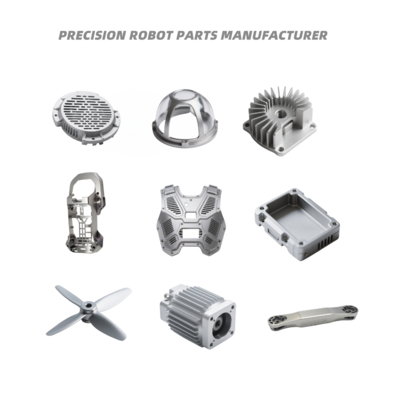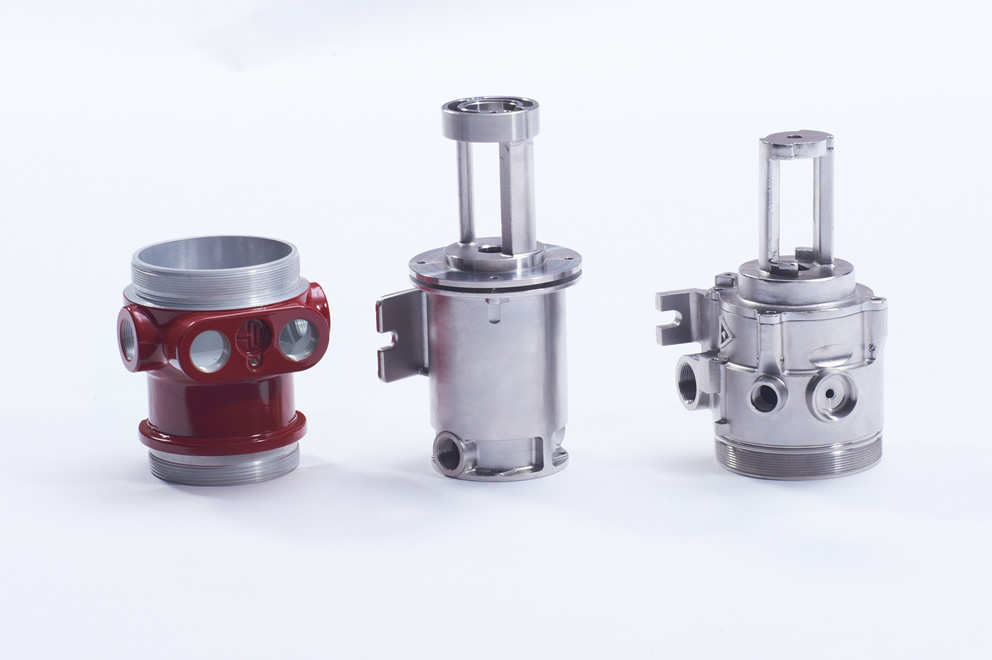The Impact of Cutting-edge Shop Solutions on Lasting Manufacturing Practices
Ingenious factory services play a crucial duty in advancing sustainable manufacturing methods. By integrating recycling innovations and energy-efficient processes, these services considerably reduce ecological impact. Factories can redeem beneficial products, thereby reducing reliance on virgin sources. As automation and lean production concepts obtain traction, production effectiveness is optimized. The full degree of these improvements and their implications for the future of manufacturing continue to be to be explored.
The Duty of Advanced Recycling Technologies in Foundries
Advanced reusing technologies are transforming the landscape of shops by boosting material recovery and reducing waste. These ingenious processes enable foundries to recover useful metals and products from scrap, minimizing dependence on virgin sources. By integrating advanced sorting, shredding, and melting techniques, foundries can successfully remove functional materials from discarded items, therefore promoting a circular economic situation.
Additionally, these technologies support the manufacturing of high-quality alloys and elements, making sure that recycled materials satisfy rigid market criteria (Aluminum Foundry). Consequently, foundries are not just boosting their material efficiency yet also lowering the ecological effect associated with conventional production techniques
This change towards advanced recycling not only boosts economic viability for factories yet additionally aligns with global sustainability goals. Ultimately, the incorporation of these modern technologies stands for a substantial advance in the quest for lasting production techniques within the factory industry.
Energy Performance: Decreasing Intake in Manufacturing Processes
Energy efficiency in making procedures is crucial for sustainable operations. Strategies such as procedure optimization methods, renewable energy assimilation, and waste heat recuperation play vital duties in minimizing power consumption. By concentrating on these locations, makers can considerably decrease their environmental effect while enhancing performance.
Refine Optimization Techniques
A considerable variety of making facilities are significantly adopting procedure optimization strategies to boost energy efficiency and lower intake. These techniques include analyzing and fine-tuning production operations, recognizing traffic jams, and implementing automation to enhance procedures. By leveraging information analytics, manufacturers can monitor energy use in real-time, enabling positive adjustments to lessen waste. Methods such as Lean Manufacturing and 6 Sigma concentrate on removing inadequacies and enhancing resource allotment. In addition, advanced technologies like Net of Things (IoT) sensing units provide insights into equipment efficiency, helping with anticipating upkeep that prevents power loss. On the whole, these process optimization techniques not just add to minimized power usage but likewise foster a culture of continual improvement within making settings, straightening operational methods with sustainability goals.
Renewable Resource Combination
Several production centers are progressively incorporating sustainable energy sources to boost overall power performance and reduce dependence on typical power grids. This change consists of the fostering of solar, wind, and biomass power, which can significantly reduce operational prices and decrease carbon impacts. By utilizing these sustainable energy resources, producers not only decrease their environmental impact however also enhance power strength. Additionally, incorporating sustainable energy systems commonly involves innovative modern technologies such as energy storage space and smart grid services, which enhance power usage and promote real-time tracking. This assimilation sustains producers in attaining regulatory conformity and conference sustainability goals while promoting technology in manufacturing processes. Ultimately, renewable resource assimilation stands for an essential shift towards more lasting manufacturing methods and long-term feasibility.
Waste Warm Recuperation
Integrating renewable power resources establishes the phase for additional advancements in energy performance, specifically with the implementation of waste heat recuperation systems. These systems capture excess thermal energy created throughout manufacturing processes, which would certainly or else be lost to the setting. By repurposing this warmth, foundries can considerably lower their power usage, reduced operational costs, and lessen their carbon footprint. The recuperated warmth can be utilized for numerous applications, such as home heating, power generation, or preheating raw materials. Because of this, waste warmth recuperation not just improves power effectiveness however likewise adds to a sustainable production version. Innovative foundry solutions that prioritize this technology are leading the way for an eco accountable commercial landscape, lining up success with eco-friendly stewardship.
Utilizing Eco-Friendly Products in Factory Workflow
As the need for lasting production practices expands, foundries are increasingly transforming to green materials to boost their procedures. By including sustainable options, such as recycled steels and bio-based binders, foundries can considerably reduce their environmental impact. These materials commonly call for less energy for processing and can lessen dangerous emissions during production.
Additionally, the adoption of eco-friendly products not only lines up with regulative criteria but likewise meets consumer choices for greener items. Foundries are exploring innovative alternatives, such as utilizing organic additives that enhance mold quality while remaining non-toxic.
The shift to lasting materials promotes a round economy by advertising resource reuse and lessening waste. Additionally, this adjustment can enhance the total effectiveness of foundry operations, as environmentally friendly products usually show remarkable residential or commercial properties, resulting in boosted item efficiency - aluminum casting. Eventually, the utilization of eco-friendly materials stands for a crucial action toward lasting manufacturing in the factory industry

Advancements in Waste Administration and Decrease Techniques
The shift in the direction of environment-friendly products in factory procedures leads the way for developments in waste administration and decrease techniques. Innovative foundry solutions are progressively embracing methods that reduce waste generation and promote recycling. Techniques such as closed-loop systems permit the reuse of products, substantially decreasing the volume of waste generated throughout producing procedures. Furthermore, improvements in filtering and separation innovations make it possible for the reliable recovery of useful spin-offs, which can be reintegrated into the manufacturing cycle.
The execution of real-time monitoring systems supplies data-driven understandings right into waste generation patterns, facilitating notified decision-making to enhance resource use. Shops are likewise exploring biowaste remedies, transforming organic waste right into power or useful materials, additionally promoting sustainability. These article source advancements not only contribute to a circular economic climate but likewise improve the total ecological performance of shop operations, highlighting the industry's dedication to decreasing its eco-friendly impact.
The Effect of Automation on Sustainable Manufacturing
While numerous sectors objective for sustainability, automation arises as an important consider enhancing sustainable manufacturing techniques within shops. By incorporating automated systems, shops can accomplish higher effectiveness, minimize waste, and lower power consumption. Automated processes permit for accurate control over production parameters, lessening problems and revamp, which subsequently conserves resources.
In addition, automation assists in the tracking of ecological influences, my sources making it possible for real-time changes that align with sustainability objectives. Precision aluminum casting. Advanced robotics and expert system can maximize product usage, leading to significant decreases in scrap and discharges
In addition, automated innovations advertise safer working environments by managing dangerous tasks, thereby boosting employee health while ensuring compliance with environmental policies. Generally, the fostering of automation within factories not just streamlines procedures however additionally plays a critical duty beforehand lasting production practices, adding to a much more accountable industrial landscape.
Case Researches: Successful Implementation of Lasting Factory Practices
Successful application of sustainable methods in factories can be illustrated via various instance studies that highlight measurable results and cutting-edge strategies. One remarkable example is a mid-sized foundry that adopted a closed-loop water reusing system, minimizing water intake by 40% and lowering wastewater generation. Furthermore, this facility changed to making use of environmentally friendly mold and mildew products, which not just improved product quality but likewise enhanced employee safety.
Another substantial situation involved a large foundry integrating sustainable energy resources, such as solar panels, which counter 30% of its power requires. This initiative not just lowered functional costs yet also added to a considerable reduction in carbon discharges.
Last but not least, a shop that applied lean production strategies reported a 25% boost in efficiency, causing much less worldly waste have a peek here and optimized manufacturing procedures. These cases jointly underscore the substantial benefits and sustainability innovations achievable through ingenious shop methods.
Often Asked Questions
Just How Do Innovative Factory Solutions Add To Overall Sustainability Goals?
Cutting-edge factory services improve general sustainability goals by enhancing resource use, lowering waste, and improving energy efficiency. These innovations add to reduce carbon impacts and advertise ecologically liable techniques within the production industry, supporting wider sustainability initiatives.
What Are the Economic Benefits of Embracing Lasting Factory Practices?
Embracing sustainable shop methods can reduce functional costs, improve source effectiveness, and enhance competition. Additionally, these methods can draw in eco-conscious customers and financiers, ultimately bring about enhanced profitability and lasting economic viability for businesses.
Just How Can Little Foundries Carry Out Lasting Developments Properly?
Little factories can carry out lasting technologies efficiently by adopting energy-efficient technologies, optimizing source usage, educating team on sustainable practices, working together with providers for environment-friendly materials, and participating in continual enhancement procedures to lower waste and emissions.
What Accreditations Exist for Sustainable Shop Workflow?

Just How Do Consumer Preferences Influence Lasting Production in Foundries?
Customer choices greatly influence sustainable production in factories by driving demand for green products. As customers prioritize sustainability, factories adjust their practices, integrating greener materials and innovations to satisfy market assumptions and improve their competitive benefit.
By repurposing this warmth, factories can considerably decrease their energy intake, reduced functional prices, and lessen their carbon impact. Shops are likewise exploring biowaste solutions, converting natural waste into energy or functional materials, further promoting sustainability. By incorporating automated systems, shops can accomplish higher performance, decrease waste, and reduced energy intake. Another considerable situation entailed a big foundry incorporating eco-friendly energy resources, such as solar panels, which offset 30% of its power requires. Innovative factory services improve overall sustainability objectives by maximizing source use, lowering waste, and boosting energy performance.